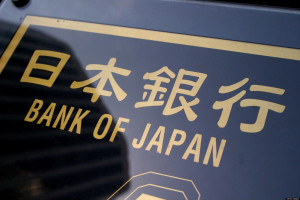Bank of Japan Deputy Governor Hiroshi Nakaso indicated Thursday that expanding its negative interest rate policy is still a key measure in paving the way for attaining a 2 percent inflation target, while stressing the undesirable impact of the controversial policy.
The negative interest rate policy has created several positive effects, including growth in corporate lending, but “the flipside of such positive developments is the growing pressure on financial institutions’ profits,” Nakaso said in a speech in Tokyo.
Nakaso, who has served as a BOJ official for more than 30 years and is versed in the inner workings of the central bank, said a drastic downturn in lending interest rates has weighed on the earnings of private financial institutions.
“This can be seen from the larger fall in lending rates relative to a marginal decline in rates on deposits,” he said. “For Japan, the impact of the negative interest rate policy on the profits of financial institutions tends to be relatively large,” he said.
Financial market participants are closely watching what the BOJ will do next to achieve its inflation target. The central bank has pledged to conduct at its two-day Policy Board meeting from Sept. 20 a “comprehensive assessment” of the aggressive monetary easing policies it has undertaken for more than three years.
via Mainichi
